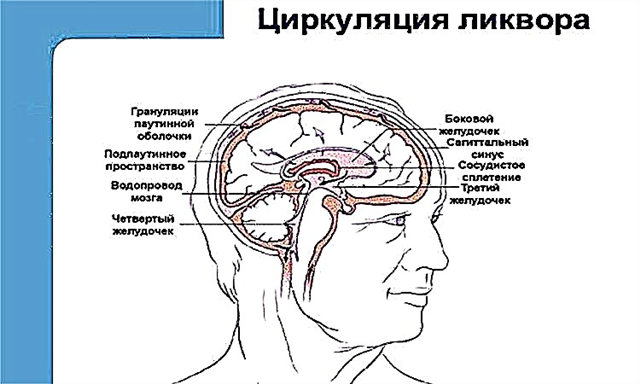Each disease manifests itself with certain symptoms. The success of the treatment depends on how correctly they are "read". Dry cough is no exception. If we take into account its main features, it is always possible to determine the possible course of events and prevent the worst cases.
Was it a coincidence or a pattern?
 A person can cough from a sharp breath, an unpleasant smell, too dry air, as a result of a cold or the development of a serious illness. Moreover, this happens reflexively, when the body seeks to get rid of all the excess trapped in the respiratory tract. Here it is important to determine whether we are talking about an isolated case, a disease of only the respiratory tract or a dry cough complements the symptoms of another ailment: asthma, heart failure, disorders in the gastrointestinal tract. He also indicates problems associated with colds, flu, SARS, lung or bronchial damage.
A person can cough from a sharp breath, an unpleasant smell, too dry air, as a result of a cold or the development of a serious illness. Moreover, this happens reflexively, when the body seeks to get rid of all the excess trapped in the respiratory tract. Here it is important to determine whether we are talking about an isolated case, a disease of only the respiratory tract or a dry cough complements the symptoms of another ailment: asthma, heart failure, disorders in the gastrointestinal tract. He also indicates problems associated with colds, flu, SARS, lung or bronchial damage.
If the cough does not go away within two weeks, we can talk about a chronic form. The longer this period lasts, the worse it is for the body, since the airways are not cleared, oxygen supply and cell nutrition deteriorate.
We pay attention to the most important symptoms of dry cough:
- Barking sounds;
- dyspnea;
- increased body temperature;
- labored breathing;
- repetition of attacks at night.
The first signal of the onset of an attack is a sore throat. Each time it not only causes discomfort, but also becomes the cause of insomnia, headache, and nervous breakdown. In this case, a thorough examination is necessary to establish the exact cause and eliminate it.
 For example, a "barking" type of cough most often indicates acute respiratory infections and inflammation of the upper respiratory tract, and a runny nose, fever, redness and sore throat become a confirmation. However, it can be present as one of the symptoms of an acute form of laryngitis and pharyngitis, with whooping cough, laryngeal swelling, allergies, or a foreign object entering the respiratory tract.
For example, a "barking" type of cough most often indicates acute respiratory infections and inflammation of the upper respiratory tract, and a runny nose, fever, redness and sore throat become a confirmation. However, it can be present as one of the symptoms of an acute form of laryngitis and pharyngitis, with whooping cough, laryngeal swelling, allergies, or a foreign object entering the respiratory tract.
A combination of cough and shortness of breath occurs in heart failure. Additional signs will indicate it: swelling in the legs, recurrent pain in the region of the heart, bluish skin tone on the fingers, on the tip of the nose and earlobes, fainting, frequent dizziness. If these symptoms are observed, an examination is required not only of the respiratory system, but also of the cardiovascular system.
Difficulty breathing also indicates a serious problem, since it gives rise to suspect the development of bronchial asthma. In this case, the attack lasts a long time, is accompanied by whistling sounds, and exhalation is more difficult than inhalation. In this case, coughing can be observed, and at the end of the attack - the separation of viscous sputum.
However, similar phenomena occur with bronchitis and pneumonia, but in this case, an increased temperature is added. What actually happens in the body can only be found out during the examination.
Possible causes of the problem
 After analyzing the symptoms, one can assume the cause of the discomfort that has appeared. So, if a person is a heavy smoker, then sooner or later he will have attacks of dry cough, but they, as a rule, appear with additional signs indicating lung disease.
After analyzing the symptoms, one can assume the cause of the discomfort that has appeared. So, if a person is a heavy smoker, then sooner or later he will have attacks of dry cough, but they, as a rule, appear with additional signs indicating lung disease.
Recurrent seizures can also indicate:
- laryngitis, when there is severe inflammation of the mucous membrane in the larynx region;
- tracheitis, when the mucous membrane of the pulmonary trachea becomes inflamed;
- bronchitis;
- bronchial asthma;
- pleurisy, which is also characterized by acute pain in the side;
- swelling in the area of the lungs;
- infectious disease (ARVI, whooping cough, measles);
- the presence of ascaris.
Coughing can also be caused by the ingestion of crumbs or other elements of food into the respiratory tract, and the presence of harmful substances nearby.
 Eliminating these causes is necessary not only in order to get rid of the cough, but also to prevent complications. For example, ascaris larvae, which migrate through the bloodstream throughout the body, multiplying, can cause intestinal obstruction, appendicitis, kidney and biliary tract disease, blockage of the lacrimal ducts, and damage to brain tissue.
Eliminating these causes is necessary not only in order to get rid of the cough, but also to prevent complications. For example, ascaris larvae, which migrate through the bloodstream throughout the body, multiplying, can cause intestinal obstruction, appendicitis, kidney and biliary tract disease, blockage of the lacrimal ducts, and damage to brain tissue.
Among the diseases associated with cough, whooping cough should be called. The most common complication of it is pneumonia, and it develops as a result of the penetration of whooping cough or a bacterial infection.
Without establishing in time the cause of repeated severe attacks, you can also get laryngitis, deafness, inguinal and umbilical hernia, nosebleeds and even encephalopathy, when the state of the brain changes. No less serious complications arise in the advanced state of other diseases.
The true reason is established during the examination.
 What disease is hidden behind a dry cough, we find out as a result of the examination. First of all, it is necessary to pass general blood and urine tests, make an X-ray, and if bronchial asthma is suspected, a blood test is taken for the level of sugar in it. An MRI or CT scan may be needed.
What disease is hidden behind a dry cough, we find out as a result of the examination. First of all, it is necessary to pass general blood and urine tests, make an X-ray, and if bronchial asthma is suspected, a blood test is taken for the level of sugar in it. An MRI or CT scan may be needed.
If several additional symptoms indicate the development of bronchial asthma, it is advisable to do an electrocardiogram. In some cases, a diagnostic method such as spirography is used, and here it is necessary to breathe into a tube connected to the equipment.
An accurate picture of the changes accompanied by dry cough can be obtained using computed tomography, bronchoscopy, and biopsy. A study of the composition of exhaled air helps to make an accurate diagnosis.
You can confirm or deny the presence of laryngitis even during a visual examination of the larynx. The mucous membrane will be inflamed, and only some of its parts can be affected - the vocal cords, for example, or the epiglottis. Diagnosis can be made by a careful examination of the upper airway.
An ultrasound scan will be needed to determine if a cough is a symptom of one of the types of pleurisy. In this case, a pleural puncture is also done, since an analysis of the exudate is necessary for further treatment.
How quickly symptoms are eliminated
 The effectiveness of treatment depends on the timely access to a specialist, examination and identification of a possible disease-cause. First of all, it is necessary to change the type of cough so that phlegm begins to separate and move away. So the body will get rid of harmful microbes and foreign objects. For systemic treatment, antitussive, expectorant drugs are prescribed. It is believed that coughing is not necessary for asthmatics, smokers, people with mild colds. In therapy, medications and physiotherapy procedures play an important role.
The effectiveness of treatment depends on the timely access to a specialist, examination and identification of a possible disease-cause. First of all, it is necessary to change the type of cough so that phlegm begins to separate and move away. So the body will get rid of harmful microbes and foreign objects. For systemic treatment, antitussive, expectorant drugs are prescribed. It is believed that coughing is not necessary for asthmatics, smokers, people with mild colds. In therapy, medications and physiotherapy procedures play an important role.
Drug treatment involves the use of combination drugs, and among them, the following are popular:
- "Alex Plus" (2-5 records 3-4 times a day for adults, and 3-4 times for children);
- "Broncholin Sage" in the form of syrup (1 tablespoon 3-4 times / day for adults, 1 teaspoon 3 times / day - for children from 3 to 10 years old);
- "Bronchicum" in the form of herbal syrup (1 teaspoon up to 6 times / day for adults, and up to 4 times for children 5-12 years old, and for babies up to 4 years old - 1/2 teaspoon up to 3 times / day).
 Also "Hexapnevmin", "Insti", "Kofanol" are used. Inexpensive and effective syrups "Ambrobene", "Gerbion", "Pertussin" are popular.
Also "Hexapnevmin", "Insti", "Kofanol" are used. Inexpensive and effective syrups "Ambrobene", "Gerbion", "Pertussin" are popular.
To prevent the onset of the attack itself, and its causes associated with the inflammatory process and weak immunity, syrups are also recommended: plantain, licorice root, "Doctor Mom", "Gedelix".
However, it should be borne in mind that syrups act on a cumulative basis, so we do not get the result from them instantly, but the result lasts longer.
Practice shows that with a dry cough, it is possible to recover faster if the medication intake is supplemented with physiotherapy procedures. Helps carry out inhalations, providing antibacterial, anti-inflammatory and expectorant effects. Such procedures contribute to the correct expansion of the bronchi.
Chest massage, UHF therapy, electrophoresis are also recommended.
Traditional methods in complex impact
A dry cough can last from several days to two weeks. In a neglected state - about a month, but in this case we are already talking about one of the types of complications.
 Traditional methods and remedies according to recipes tested by many generations help to speed up recovery. Vitamin C helps not to miss the disease beyond the first signs, if you start taking it right away. It does not have to be a tablet form. Tea with the addition of lemon or lime, berries or leaves of black currant, raspberries will be beneficial. This will help the body to quickly cope with a viral, bacterial infection, and also strengthen the defenses.
Traditional methods and remedies according to recipes tested by many generations help to speed up recovery. Vitamin C helps not to miss the disease beyond the first signs, if you start taking it right away. It does not have to be a tablet form. Tea with the addition of lemon or lime, berries or leaves of black currant, raspberries will be beneficial. This will help the body to quickly cope with a viral, bacterial infection, and also strengthen the defenses.
You can moisturize the pharyngeal mucosa and get rid of phlegm using an oil-honey mixture. To prepare such a home medicine, you need to thoroughly mix the ingredients taken in a 1: 1 ratio. It is recommended to take it 1 tablespoon three times a day before meals.
If pharyngitis or laryngitis is diagnosed, gargling with a simple solution will help to quickly get rid of the symptoms of the disease. It is prepared on the basis of 250 ml of warm water, salt and soda (1 teaspoon each) and 2-3 drops of iodine. Gargling is recommended several times a day. After the procedure, you cannot go outside immediately.



